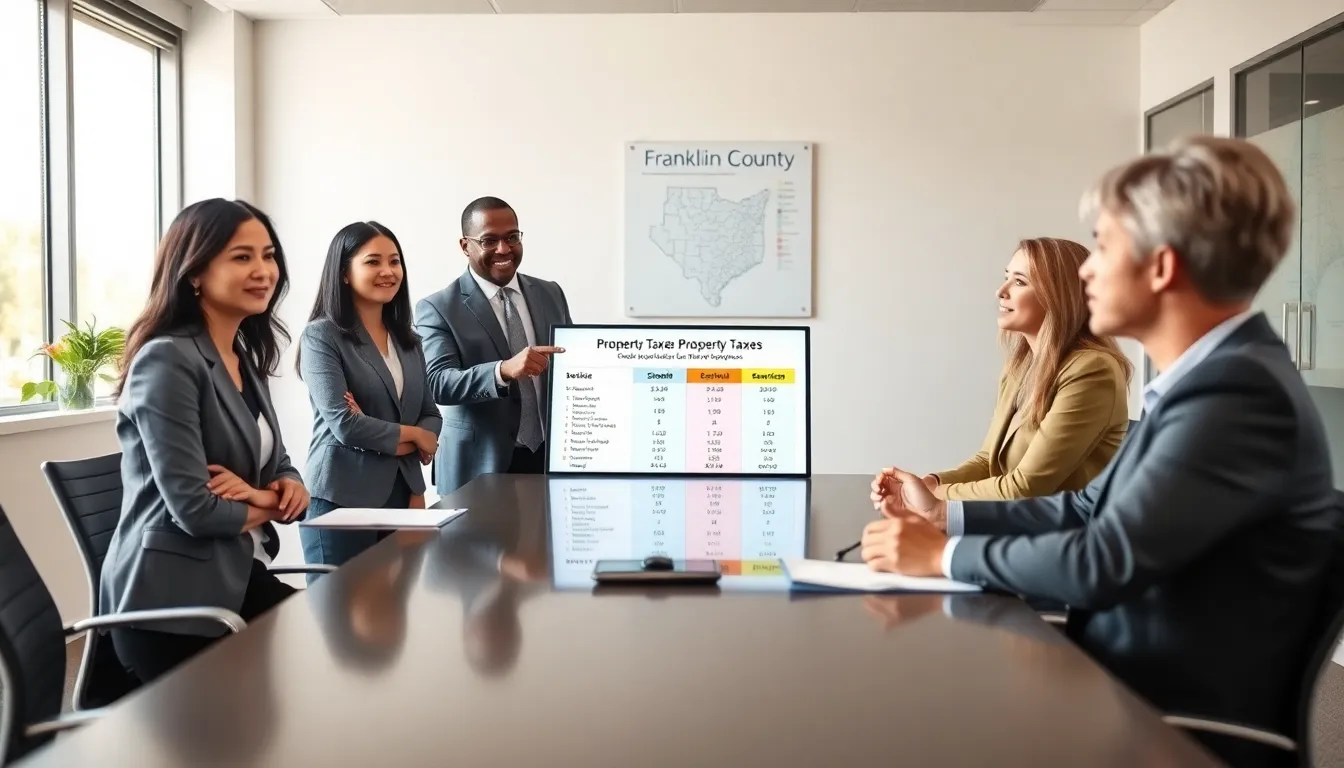Table of Contents
ToggleIf you own property in Franklin County, you probably know one universal truth about property taxes: they have a way of showing up right when you least expect them. Don’t worry. Understanding your property taxes doesn’t have to be a headache-inducing venture. Whether you’re a seasoned homeowner or a first-time buyer pondering the ins and outs of real estate, a little knowledge can go a long way. Buckle up, because we’re about to break down everything you need to know about Franklin County property taxes, without the usual jargon and confusion.
Understanding Property Taxes in Franklin County

In Franklin County, property taxes are essentially the local government’s way of funding essential services that keep communities vibrant. Think of it as your fair share contribution for schools, roads, and emergency services. The county assesses properties and assigns a tax rate based on the estimated value of each property.
But what exactly does that mean for the everyday homeowner? When you receive that annual tax bill, it can feel like a surprise party you never wanted to attend. Fear not. Understanding the basics can help you navigate this yearly occurrence without breaking a sweat.
How Property Taxes Are Calculated
Calculating property taxes in Franklin County is a multi-step process. First, the county assesses the market value of your property. This process involves comparing similar properties in your area and could include factors like upgrades, property size, and location. Once the property’s value is established, a tax rate is applied to determine your tax bill.
The formula looks something like this:
Property Tax = Assessed Value x Tax Rate
Simple, right?
But, keep in mind that the tax rate can change based on the county’s budgetary needs, so it’s essential to stay updated on local happenings. You might also want to check the values of nearby properties to ensure your assessment is fair.
Factors Affecting Property Tax Rates
Various factors can influence your property tax rate in Franklin County. First and foremost, the location of your property plays a significant role. Properties in high-demand areas generally have a higher tax rate, reflecting the increased demand for services.
Also, local government budgets impact tax rates. When the county needs to raise funds, say, for a new school or infrastructure improvements, tax rates might experience adjustments. Always keep an eye on community meetings or local news to anticipate any shifts that could impact your wallet.
Payment Options and Deadlines
Paying property taxes in Franklin County can be a straightforward process, but it does come with its deadlines. Property tax bills are typically sent out once a year, with payment options that may include single payments or installments. Be sure to check if early payment discounts are available: every little bit helps.
Exemptions and Deductions Available
Did you know that certain exemptions and deductions may lighten your tax load? Homeowners may qualify for homestead exemptions or property tax credits based on income or age. Always consult the county’s website or your local tax office to find out what you might qualify for – you could be leaving money on the table.
Common Misconceptions About Property Taxes
There’s a lot of misinformation floating around about property taxes, leading many homeowners to worry unnecessarily. One common misconception is that all assessed property values increase every year. While it’s true that property values can appreciate, they aren’t guaranteed to rise annually. Depressed markets can lead to lower assessments, potentially lowering your tax bill.
How to Appeal Your Property Tax Assessment
If you believe your property has been unfairly assessed, you have the right to appeal. Begin by gathering evidence, such as comparable sales data and photos of your property. Then, contact the county assessor’s office to start the appeal process. It might seem daunting, but many residents successfully reduce their tax bills this way.



